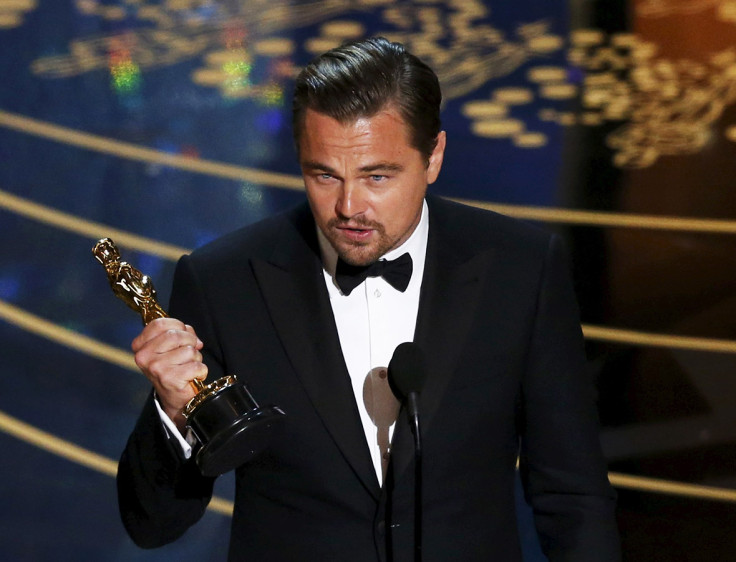Leonardo DiCaprio is right about climate change and it is time big business listened

When Leonardo DiCaprio used his long-awaited Oscars acceptance speech on Sunday 28 February night to sound an environmental battle cry, it simply couldn't be ignored. For several years, the actor has been using his fame and his position as a UN Messenger of Peace to do important work in raising awareness of climate change. Now, by choosing the pinnacle moment of his professional career as an opportunity to address environmental concerns about "man's relationship to the natural world", he has undoubtedly helped bring the issue of climate change back into the public consciousness again.
But as DiCaprio rightly points out, celebrity endorsements alone cannot solve the problem. Ultimately, it will take action from governments, financial institutions and big businesses, as well as individuals, to lead the way in reshaping the future of our planet. But there is cause for optimism...
While the overall environmental picture painted over recent years has been bleak, fantastic strides have been made in recent months that will help to ensure we safeguard the future of the planet. In November, of course, the Paris Climate Summit saw 196 countries provisionally agree to a legally binding climate deal to reduce global carbon emissions, limit rising global temperature levels and provide developing countries with $100 billion a year in climate finance by 2020. Thanks to this deal, sustainability and ethics should remain a firm part of the global political and economic agenda going forward.
This positive momentum continued this weekend, as Energy UK announced it will be supporting the phasing out of coal-fired stations in the UK. The trade body will now be campaigning for low-carbon alternatives and a shift towards a low-carbon economy. This marks a major step forward for the UK that we hope will have a knock-on effect on other influential industry bodies.
It is not just the policy makers who must drive change though. Research we conducted last year shows that half of UK adults believe that banks and big business have a responsibility to do more to tackle climate change. It is therefore crucial that these institutions reflect the public consensus by being informative and transparent when it comes to sustainability. This desire for transparency is indicative of consumers actively taking more interest in business, demanding that the supply chains and financial arrangements of corporations can stand up to scrutiny on ethical grounds.
Numerous companies − from Primark and the collapse of a supplier's factory in Bangladesh in 2013, to VW and the huge fallout following the recent emissions scandal − have been exposed for questionable ethical policies. These crises do not just bring about serious financial and reputational implications, they are also catalysts for the implementation of change and can ultimately help position issues of sustainability and ethics at the top of the business agenda.
In turn, businesses and financial institutions come under more pressure to offer consumers channels in which they can use their money to have a positive impact on the planet. Last year, ahead of the Paris Climate Summit, we commissioned research looking at areas of transparency and sustainability, asking investors across the UK how they feel towards ethical investments. The results were both surprising and encouraging, as they showed more and more evidence of investors placing high importance on the sustainability of their investments.
So while individuals alone cannot effect global change, individuals acting collectively can certainly influence businesses to do so. This means that each and every one of us can play a role in tackling the pressing social and environmental challenges facing us and creating the society we want to see. Making conscious choices about how we use our money – the products we purchase, the companies we buy from and the banks we entrust it with – is one of the most powerful ways each of us can make a difference.
Last year, the value of ethical sales grew by 8%, during a period when inflation barely rose above 0.5%. And the overall value of the ethical market grew from £35bn to £38bn, showing a continued commitment from consumers across all sectors to support more ethical products and services. If the current trend continues, businesses will be left with little choice but to take the lead on climate change.
Huw Davies is head of personal banking at Triodos Bank
© Copyright IBTimes 2025. All rights reserved.





















